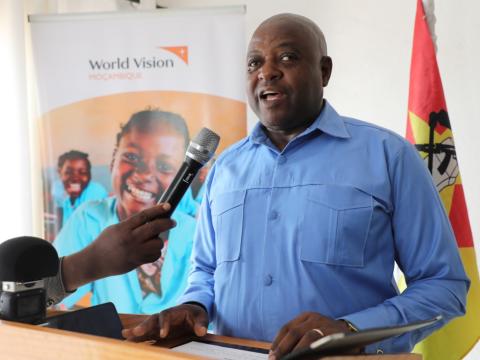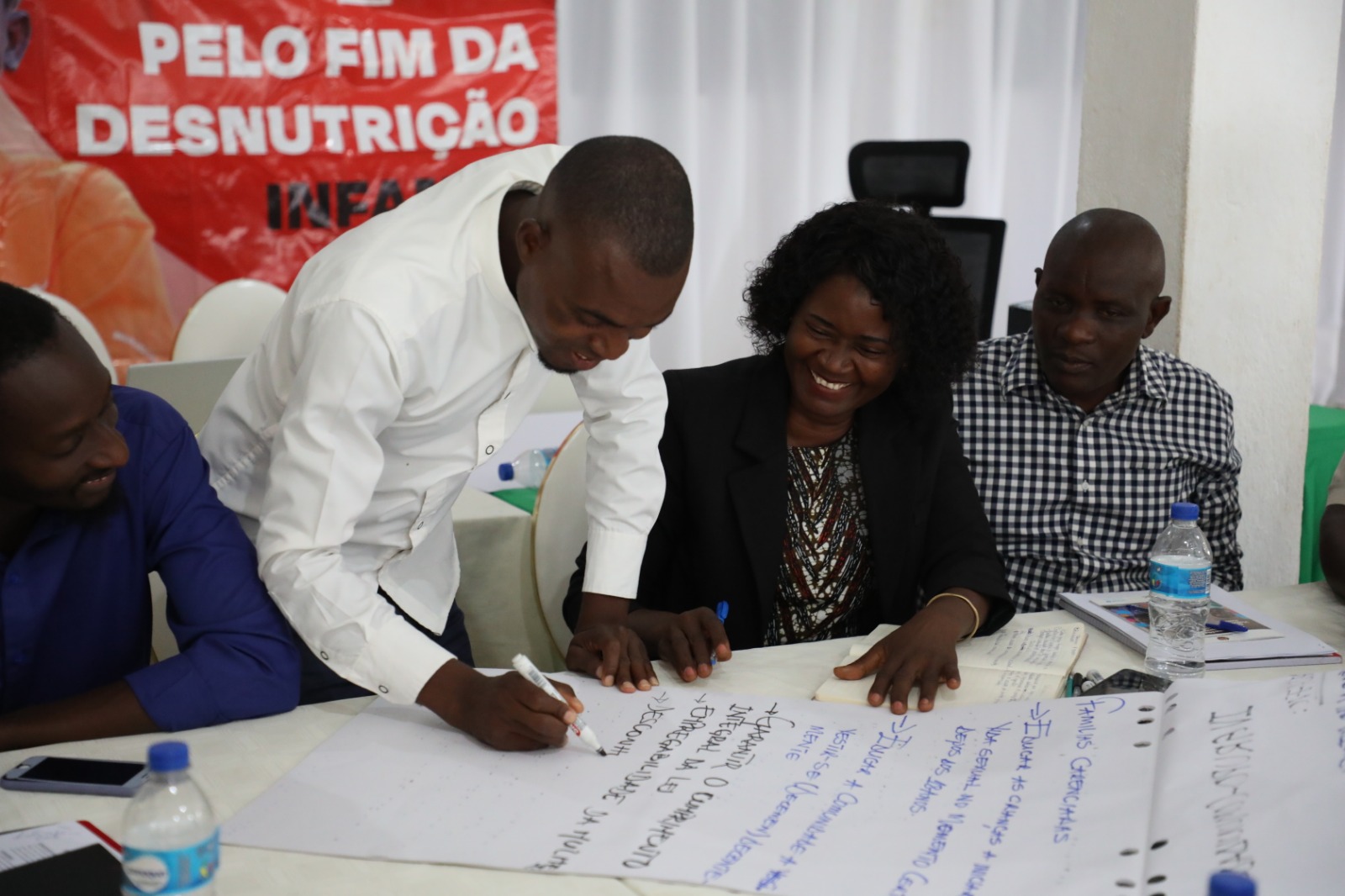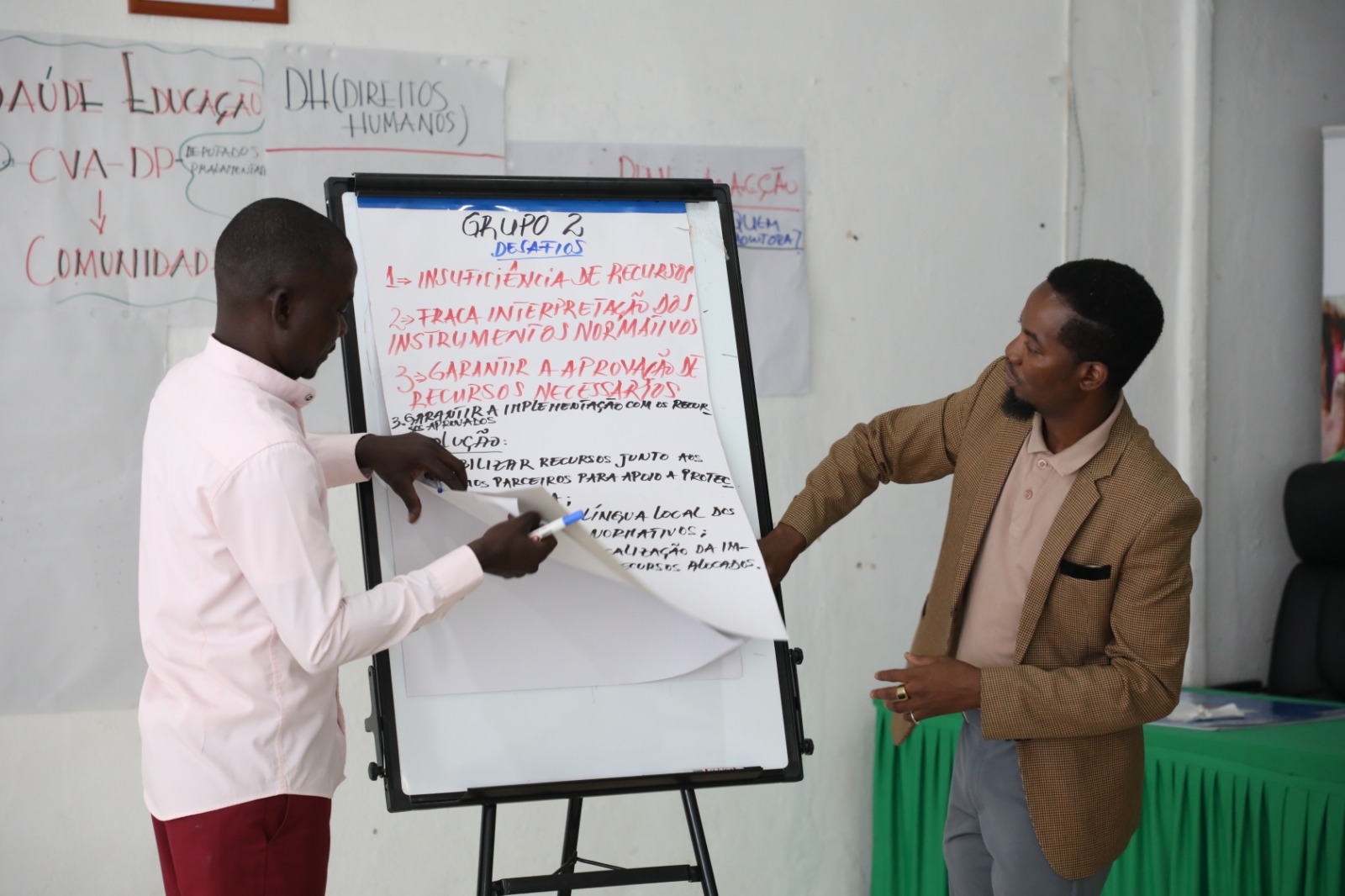Local-Level Parliament Members Reflect on Child-Centered Governance in Mozambique

Members of the local parliament known as provincial assemblies, gathered in the central province of Tete in Mozambique to discuss the most effective approaches to deliver public services, especially for children.
This marks the first time since the assemblies were established in 2018 that members have come together for a pilot training on Child Well-Being Champions, focusing on key social sectors, including education.
“It’s not enough to ask how many schools were built; we must ask whether those schools meet the needs of all children, including those with disabilities”, said Ricardo, one of the trainers.
The three-day capacity-building exercise is aimed at strengthening the Assembly’s role in ensuring that governance and public decision-making are beyond budget approval but also intentional to protecting the rights of every child.
“We will work together for the well-being of children,” affirmed Adelino Jano, President of the Tete Provincial Assembly.
Established in 2018, the provincial assemblies have the responsibility to express opinions and make decisions on matters and issues of interest for the economic, social, and cultural development of the province, aimed at meeting collective needs and safeguarding the interests of the respective populations.

World Vision Mozambique organized the session to help assembly members better leverage their influence by connecting them with Citizen Voice and Action (CVA) groups. The initiative promotes constructive dialogue and social accountability to improve public service delivery.
Community representatives attending the session shared a renewed sense of trust and inclusion.
“It’s powerful to see our leaders listening to us not only about buildings or roads, but about our children’s future,” said Cleofas, a CVA member from Angónia District.
Throughout the training, World Vision emphasized the importance of ensuring that children's priorities are reflected in public expenditure, not treated as secondary issues tied only to parents or households.

Throughout the session, WV-Moz engaged the members to ensure that children’s priorities reflect in public expenditure as standalone practices, contrary to budgeting practices so far that implicitly associate child-related issues to the parents or family.